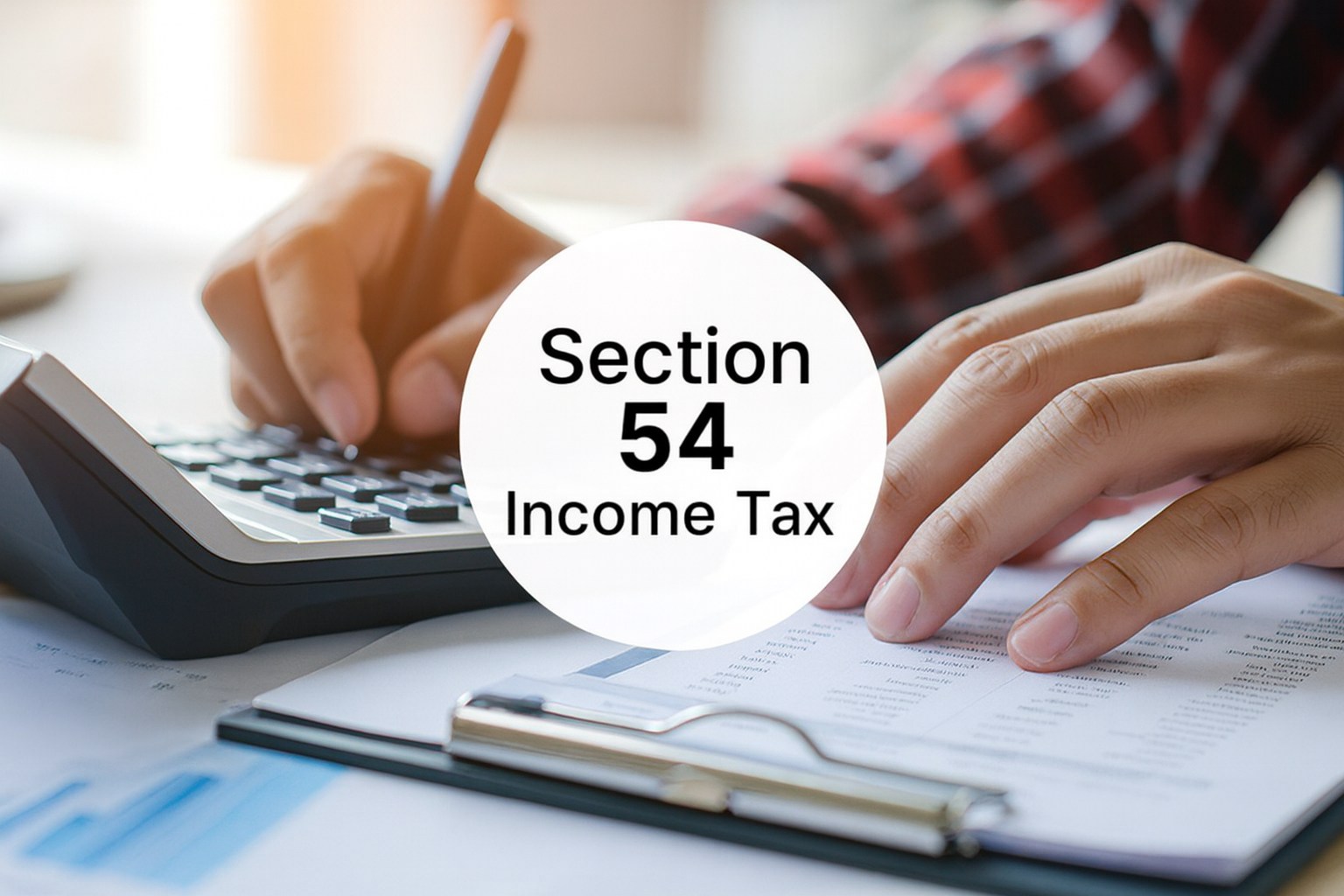When you sell a house in India, you may earn a capital gain. Normally, this gain is taxable. But the Income Tax Act, 1961, provides certain exemptions if you reinvest that money in another house. One of the most important exemptions is given under Section 54.
Section 54 helps individuals and Hindu Undivided Families (HUFs) save tax on long-term capital gains that arise from selling a residential property, if they buy or construct another house within the allowed time period.
What is Section 54 of the Income Tax Act?
Section 54 is a tax exemption provision that allows individuals and HUFs to avoid paying tax on the long-term capital gains from selling a residential house, if they reinvest the gain into another residential house property within a specific period.
Eligibility for Section 54 Exemption
Only certain taxpayers can claim this exemption. The main conditions are:
- The taxpayer must be an Individual or HUF (companies, LLPs, and firms are not eligible).
- The asset sold must be a residential house property.
- The property sold must be a long-term capital asset (held for at least 24 months before the sale, as per CBDT rules).
- The taxpayer must invest in one or two residential properties in India (explained below).
Conditions for Claiming Section 54 Exemption
Time Limit for Investment
- Purchase of new house: within 1 year before or 2 years after the date of transfer of the original house.
- Construction of new house: must be completed within 3 years from the date of transfer.
Number of Properties Allowed
- The exemption is available for one residential house in India.
- From AY 2020-21, exemption can be claimed for two residential houses, but only if the capital gain does not exceed ₹2 crore. This option can be used only once in a lifetime.
Amount of Exemption
The exemption amount is the lower of:
- The capital gain earned, or
- The cost of the new house purchased/constructed.
Deposit in Capital Gains Account Scheme (CGAS)
- If the taxpayer is not able to buy or construct a new house before filing income tax return, the unutilized amount must be deposited in a Capital Gains Account Scheme (CGAS) with a bank.
- This amount should later be used for purchase/construction within the allowed time.
Calculation of Exemption under Section 54
Example:
- Sale consideration of old house: ₹80,00,000
- Indexed cost of acquisition: ₹30,00,000
- Long-term capital gain (LTCG): ₹50,00,000
- New house purchased: ₹45,00,000
Exemption = Lower of LTCG (₹50,00,000) or new house cost (₹45,00,000).
So, exempted gain = ₹45,00,000. Taxable gain = ₹5,00,000.
When Does Section 54 Exemption Get Withdrawn?
The exemption can be withdrawn if:
- The new house is sold within 3 years of purchase/construction.
- In such cases, the exemption earlier claimed will be taxed as short-term capital gain in the year of sale.
Important Points to Remember
- The new house must be in India (property outside India is not eligible).
- Exemption is available only on long-term capital assets.
- If the cost of a new house is more than the gain, the entire gain is exempt.
- Proper documentation is necessary to claim this exemption.



